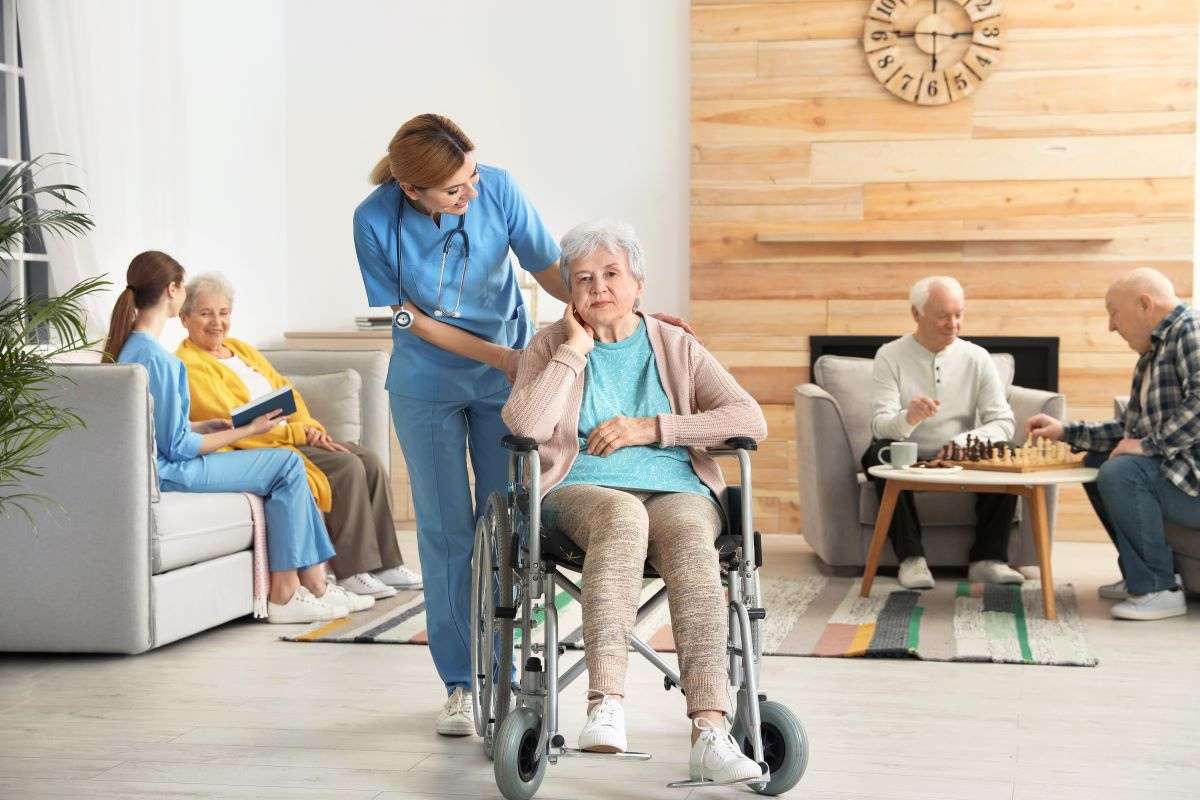What Is a Healthcare Ombudsman? Washington State Guide for Facilities

In response to the ongoing neglect and mistreatment of nursing home residents, Congress amended the Older Americans Act and established a national Long-Term Care (LTC) Ombudsman Program in 1972. Since the launch of this program, each state has been required to address problems reported by LTC residents using a healthcare ombudsman. Washington State in particular has established a program that standardizes the quality of LTC services delivered in each county.
If you’re an LTC facility leader, working collaboratively with your local ombudsman can bring many benefits to your care services. To help you to get the most out of their guidance, we’ll walk you through what an LTC ombudsman in Washington State does and how to prepare for potential interactions.
What Is the Washington State Ombudsman Program?
Washington State’s ombudsman office is authorized to provide all services under the Older Americans Act. In line with the national program, the state’s office seeks to protect the rights, dignity, and wellbeing of LTC residents across the following settings:
- Nursing homes
- Adult family homes
- Assisted living facilities
As an LTC facility leader, you’ll most likely be interacting with the LTC ombudsman office. However, Washington State also has a separate ombudsman office that addresses child and family welfare-related concerns. If you are looking for more information about this particular office, you can visit the Office of the Family and Children’s Ombudsman.
What Does a Long-Term Care Ombudsman Do?
An ombudsman is more generally defined as an impartial individual who investigates and resolves complaints made by individuals against organizations. In the long-term care context, this involves any complaints that patients, their friends or families, or other concerned parties make about an LTC facility. Washington State’s ombudsmen are trained to resolve a variety of issues regarding quality of care, restraint use, transfers and discharges, abuse, and other aspects of resident rights.
Beyond receiving and addressing filed complaints, there are many other duties carried out by the office of the ombudsman. Washington State’s program also works to:
- Coordinate the activities of all LTC ombudsmen throughout the state.
- Protect the confidentiality of LTC records and complaints.
- Maintain a uniform reporting system to track data on the conditions of LTC facilities.
- Advocate before the legislature to improve the rights of LTC residents.
- Provide educational resources to empower LTC residents, families, and the community.
- Monitor the work of other state agencies that oversee LTC policies and regulations.
Who Can Seek Help From an Ombudsman?
While Washington State’s ombudsmen are primarily trained to protect the rights of LTC residents and their families, they provide guidance to anyone in the general public who is concerned about the health or safety of LTC residents — including facility staff and leaders. Examples of people who may want to contact the ombudsman office include:
- Families of residents who want to appeal a sudden discharge or transfer.
- Residents who are having trouble receiving timely care from their LTC facility.
- LTC providers who are concerned about the way their facility is managed.
- LTC facility leaders who need help interpreting local laws and regulations.
- Community members who want to advocate for better LTC-related legislation.
Who Is Your Ombudsman? Washington State Phone Number and Contact Information
Washington State has several regional ombudsman offices, and the ombudsman you should contact will depend on the county you or your facility is located in. However, you can also reach out to the state ombudsman office for general inquiries or questions about how to reach your regional ombudsman. The contact information for the state’s office is provided below.
| Washington Ombudsman Contact Information | |
|---|---|
| State Ombudsman | Patricia Hunter |
| State Ombudsman Phone Number | 1-800-562-6028 |
| State Ombudsman Address | 1200 South 336th St, Federal Way, WA 98003 |
| State Ombudsman Website | https://www.waombudsman.org/find-an-ombuds/ |
| State Ombudsman Email | ltcop@mschelps.org |
Tips for Facilities Undergoing Investigations
As a LTC facility leader, you can reach out to your ombudsman for help at any time. However, they’ll need to conduct a more structured investigation if they receive a complaint about your facility. While this may feel like a daunting situation, keep in mind that your local ombudsman would rather work with you than against you. They’re trained to remain impartial, and their goal is to find a fair resolution for both you and your residents.
This is why it’s important to remain collaborative with your ombudsman and help them resolve any potential issues as quickly and appropriately as possible. Follow these tips to allow for a smoother process:
- Cooperate: If your ombudsman asks you about the situation at hand, cooperate by providing all necessary information. This will help them better understand the issue at hand so that they can come up with a fair resolution.
- Engage: If your ombudsman invites you to discuss ways to improve your facility’s services, engage with them so that you can work together to find a practical solution. Even after the investigation is over, you can continue reaching out to the office to take additional steps toward optimizing your care services.
- Act: If the ombudsman identifies an issue that must be resolved, this is an opportunity to improve the quality of your services. Act on any advice given by your ombudsman in a timely manner to ensure that similar events don’t occur again.
Want More Resources to Support Your Residents and Care Team?
Are you ready to implement strategies recommended by your health ombudsman? Washington State facility leaders can enhance that process with IntelyCare. Our free and expert-written hub of articles offers practical facility management tips to help you keep both your residents and staff satisfied.
